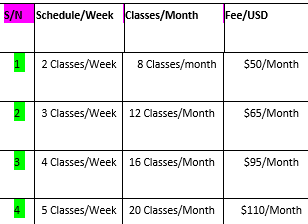FOOD CHAIN IN AN ECOSYSTEM
By: Yusuf Basirat Bolanle
FOOD CHAIN IN AN ECOSYSTEM
DEFINITION, DIAGRAM, LEVEL OF ORGANISMS AND IMPORTANCE OF A FOOD CHAIN IN AN ECOSYSTEM
Topic Outline
1. Introduction to food chain2. Definition of food chain
3. A well labelled diagram of a food chain
4. Levels of organism in a food chain
5. Importance of a food chain
INTRODUCTION TO A FOOD CHAIN
The sun is the major source of energy This is used by the producers or plants to produce their food with the help of photosynthesis. There comes another organism which is the consumer. The consumer eates the food and thereby taking up the energy generated to another level.
The primary consumers are the organisms that consume the primary producers in an ecosystem feeding. This can be an herbivore animal like a cow or a goat or a man. When these animals are consumed by a man, the, the man becomes the secondary consumer in the chain.
All living things need nutrients to survive, and food chains shows these feeding relationships.
What is a food chain?
A food chain is an order that shows the flow of energy from one organism to the other. The energy flows in a specific pathway in a community which has producers, consumers and decomposers. Energy flows from one level to the other, through different organisms.
A food chain is the interconnection of food among different organisms from the
producers to the consumers and so on. It shows the flow of energy among different organisms in an ecosystem through feeding.
Level of organisms in a food chain
The level of organisms in the food chain consists of the following stages:1. The producer
2. Primary consumer
3. Secondary consumer
4. Tertiary consumer
5. De composer
1. The Producers
The producers are the organisms that can make their own food through the help of photosynthesis. They are always at the beginning of the food chain. The are also known as autotrophic animals, or organisms that are photosynthetic They can make their own food by using light energy and turning it into chemical energy through a process called Photosynthesis.
Photosynthesis is a system whereby the green plants combine carbon IV oxide with water using light energy and the chlorophyll to produce carbon dioxide and the oxygen. The Producers are mainly “The Plants”.
2. The Primary Consumers
The Primary Consumers are the organisms that consume the producers to generate their own energy. They are the second in the food chain The primary consumers cannot make their own food but depend largely the the primary consumers to survive.
Examples are goat and grasshoppers, caterpillars, rabbits, hummingbirds and cows. These category of animals are also called Heterotrophic animals.They are mainly herbivores, or organisms that eat plants, algae or fungi. They may be small rodents or insects that feed on plants. Human beings on the other hand can eat both plants and animals, as a result of this, they can also be regarded as primary consumers
3. The Secondary consumers
The third of this categories is The Secondary Consumers. They are also referred to as the Heterotrophic Animals.The are the animals that eat or consume the primary consumers. Good examples of this are Eagles.
The Secondary consumers are usually carnivores type or carnivorous animals. They get energy by eating only herbivore animals. Some secondary consumers are frogs, snakes and foxes.
4. The Tertiary Consumers
The Tertiary Consumers are the fourth level in the food chain. The are also known as the apex predators. They are high-level consumers and predators. Example of this category of animals is a human being who can eat both producers and other consumers. They are usually bigger than the prey. Other examples are the eagles and Human beings
5. De composers
De composers are those animals that feed on the dead animals. They feed mainly on the dead of another animals. They are always refereed to as the last level in the food chain. They are the ones recycling the matters of dead animals back into the soil. Examples of decomposers are the fungi and the bacterial They consume all the other organisms in the food chain.
Importance of food chain
1. The following are the importance of food chain in an ecosystem.
1. Food chain shows the feeding relationship among the animals in an ecosystem
3. It also shows how one organisms lives on the other one to survive.
4.It helps the students, teachers and other scientists to understand the flowing and transferring of food within the ecosystem animals.
Continue with the Food Web In An Ecosystem Here











0 Comments